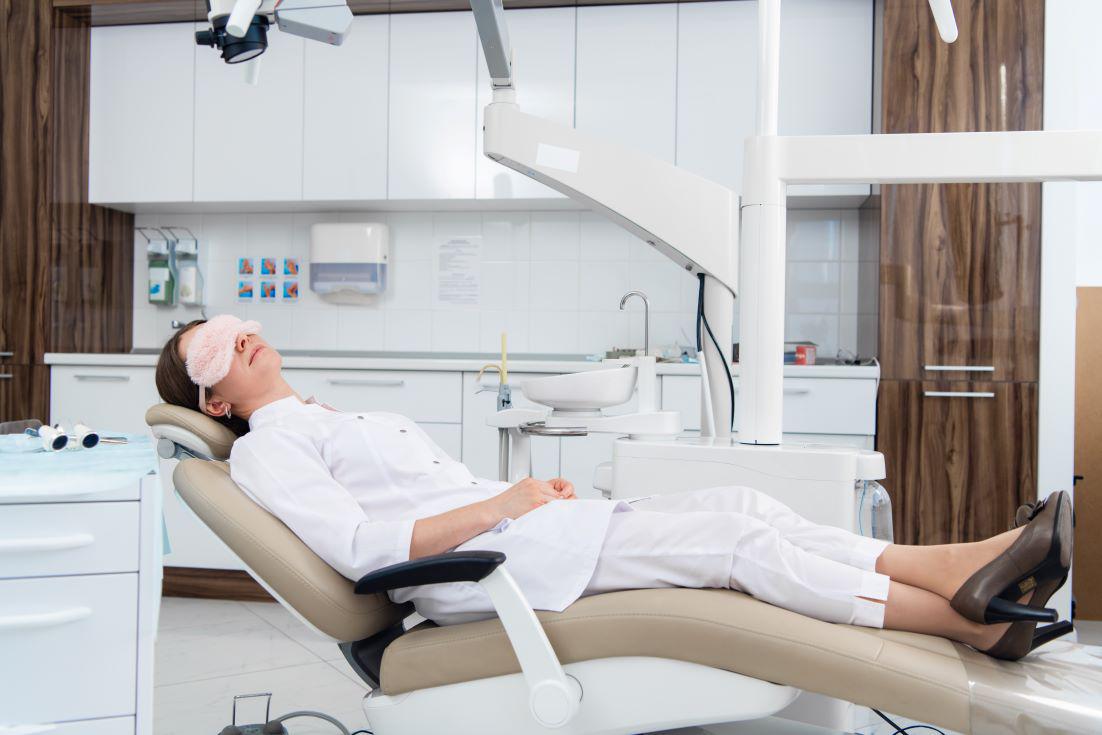For many people, a visit to the dentist is a routine part of maintaining good oral health. However,
for others, the mere thought of sitting in a dental chair can trigger overwhelming feelings of
anxiety and fear. Dental anxiety is a common issue that affects millions of people worldwide,
leading some to avoid necessary dental care altogether.
Fortunately, sedation dentistry offers a solution that can help ease these fears and make dental
visits more manageable. Contact our office today if this feels right for you!
Understanding Dental Anxiety
Dental anxiety can range from mild nervousness to severe phobia, known as dentophobia. It can
stem from various sources, including a fear of pain, negative past experiences, the sound of
dental instruments, or even the fear of needles. For some, the anxiety is so intense that they
avoid going to the dentist for years, leading to deteriorating oral health and the need for more
complex treatments down the road.
Avoiding dental care due to anxiety can have serious consequences, including tooth decay, gum
disease, and other oral health issues that can impact overall health.
What is Sedation Dentistry?
Sedation dentistry involves the use of medication to help patients relax during dental
procedures. It is commonly referred to as “sleep dentistry”, although most sedation methods do
not actually induce sleep. Instead, they work by calming the nervous system, reducing anxiety,
and helping patients feel more at ease.
There are several levels of sedation used in dentistry:
1. Minimal Sedation:
The patient remains awake but feels relaxed. This level of sedation is often
achieved through nitrous oxide (laughing gas) or oral sedatives.
2. Moderate Sedation:
Also known as “conscious sedation”, this level allows the patient to remain awake but
in a deeply relaxed state. Moderate sedation can be achieved with higher
doses of oral sedatives or intravenous (IV) sedation.
3. Deep Sedation:
The patient is on the edge of consciousness but can still be awakened if necessary.
This level of sedation is typically administered through IV and is used for more invasive
procedures.
4. General Anesthesia:
The patient is completely unconscious and will not wake up until the effects of the
anesthesia wear off. General anesthesia is usually reserved for very complex or
lengthy procedures and is typically administered in a hospital setting.
How Sedation Dentistry Can Help Alleviate Dental Anxiety
Sedation dentistry offers several benefits for patients with dental anxiety:
1. Reduced Fear and Anxiety:
The primary benefit of sedation dentistry is its ability to significantly reduce fear
and anxiety. Patients who might otherwise be too anxious to receive dental care
can undergo procedures with a sense of calm and relaxation.
2. Pain Management:
While local anesthesia is used to numb the area being treated, sedation dentistry
adds an extra layer of comfort. Patients who are sedated are less likely to feel
discomfort or pain during the procedure.
3. Faster and More Efficient Treatment:
When a patient is relaxed and calm, the dentist can work more efficiently. This
means that complex procedures can often be completed in a shorter amount of
time. Additionally, patients who require multiple treatments may be able to have
them done in a single visit, reducing the need for multiple appointments.
4. Reduced Gag Reflex:
Some patients have a strong gag reflex, which can make dental procedures
uncomfortable or even impossible. Sedation helps to relax the muscles, reducing
the gag reflex and allowing the dentist to perform the necessary work without
interruption.
5. Improved Patient Cooperation:
For patients with severe anxiety or those who struggle to sit still for long
periods, sedation can help them remain calm and cooperative throughout the
procedure.
Who Can Benefit from Sedation Dentistry?
Sedation dentistry is not just for those with dental anxiety. It can also benefit patients who:
1. Have a low pain threshold or sensitive teeth
2. Require extensive dental work
3. Have a strong gag reflex
4. Have difficulty sitting still for long periods
5. Have a fear of needles or dental instruments
6. Have had traumatic dental experiences in the past
Contact Us!
Sedation dentistry offers a safe and effective way to help patients overcome their fears and
receive necessary treatment in a calm and relaxed state.
If you or a loved one struggles with dental anxiety, schedule your consultation today to talk
about the options available through sedation dentistry. With the right approach, you can ensure that your
dental visits are as comfortable and stress-free as possible, allowing you to maintain
optimal oral health!


